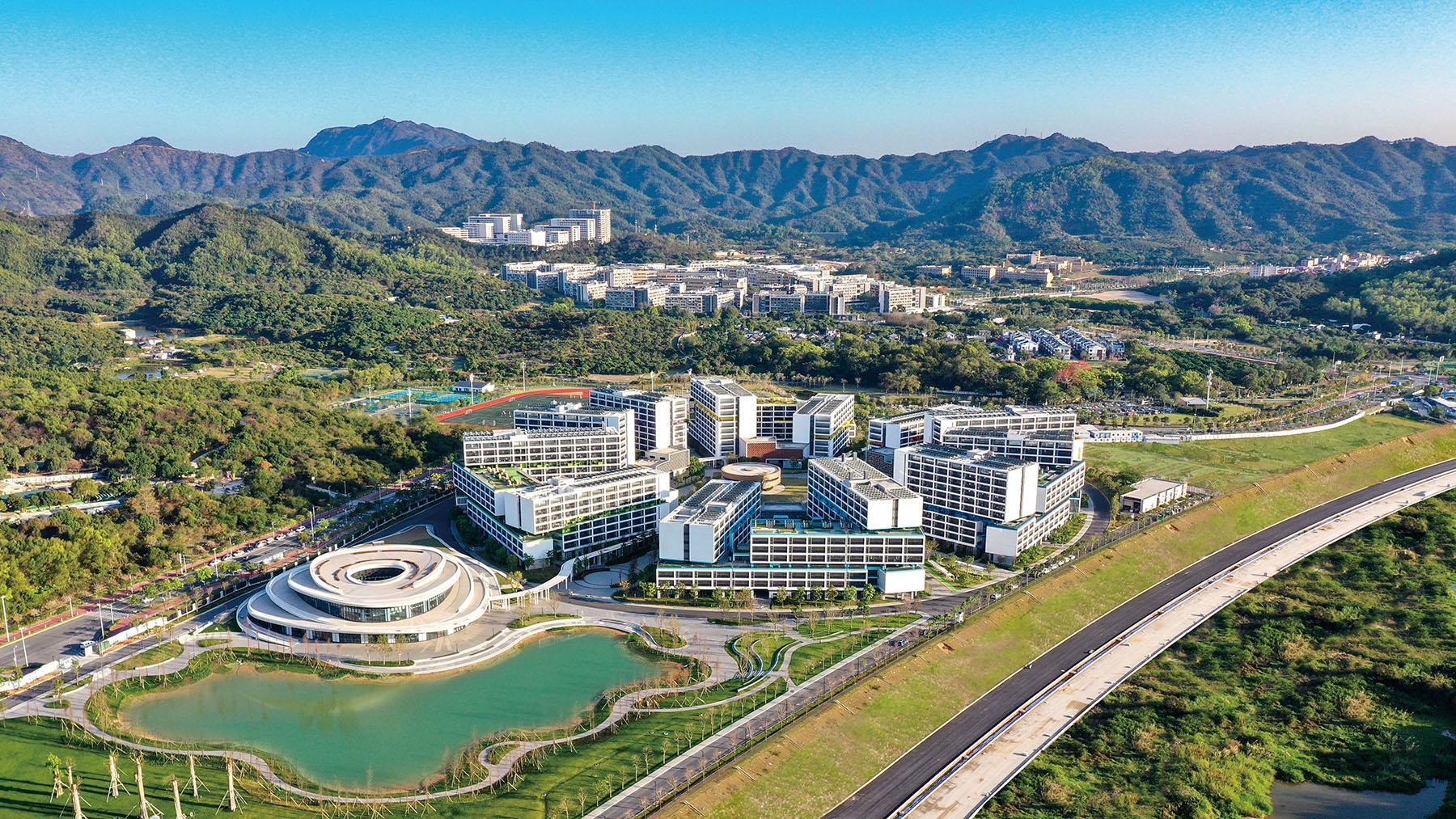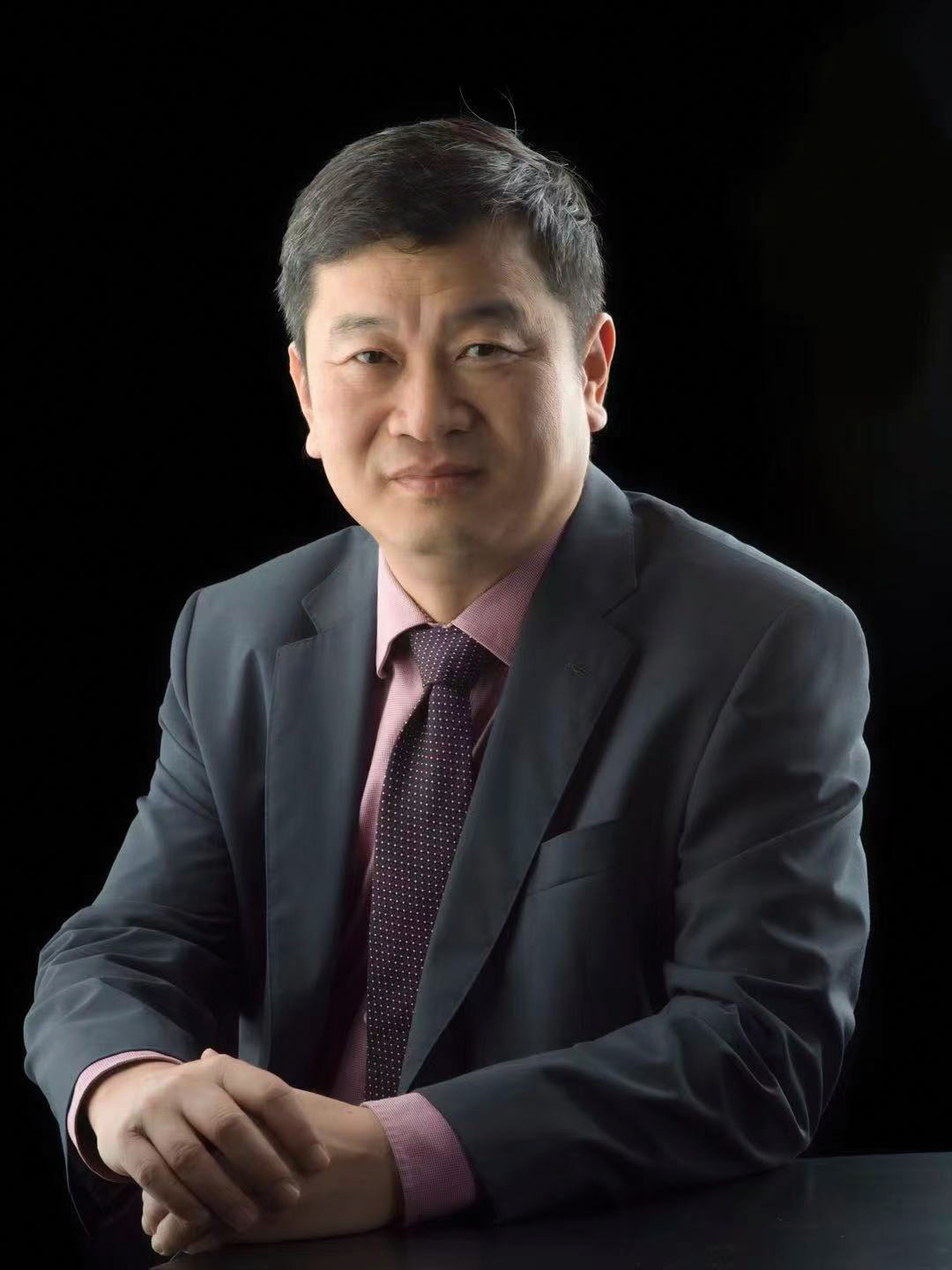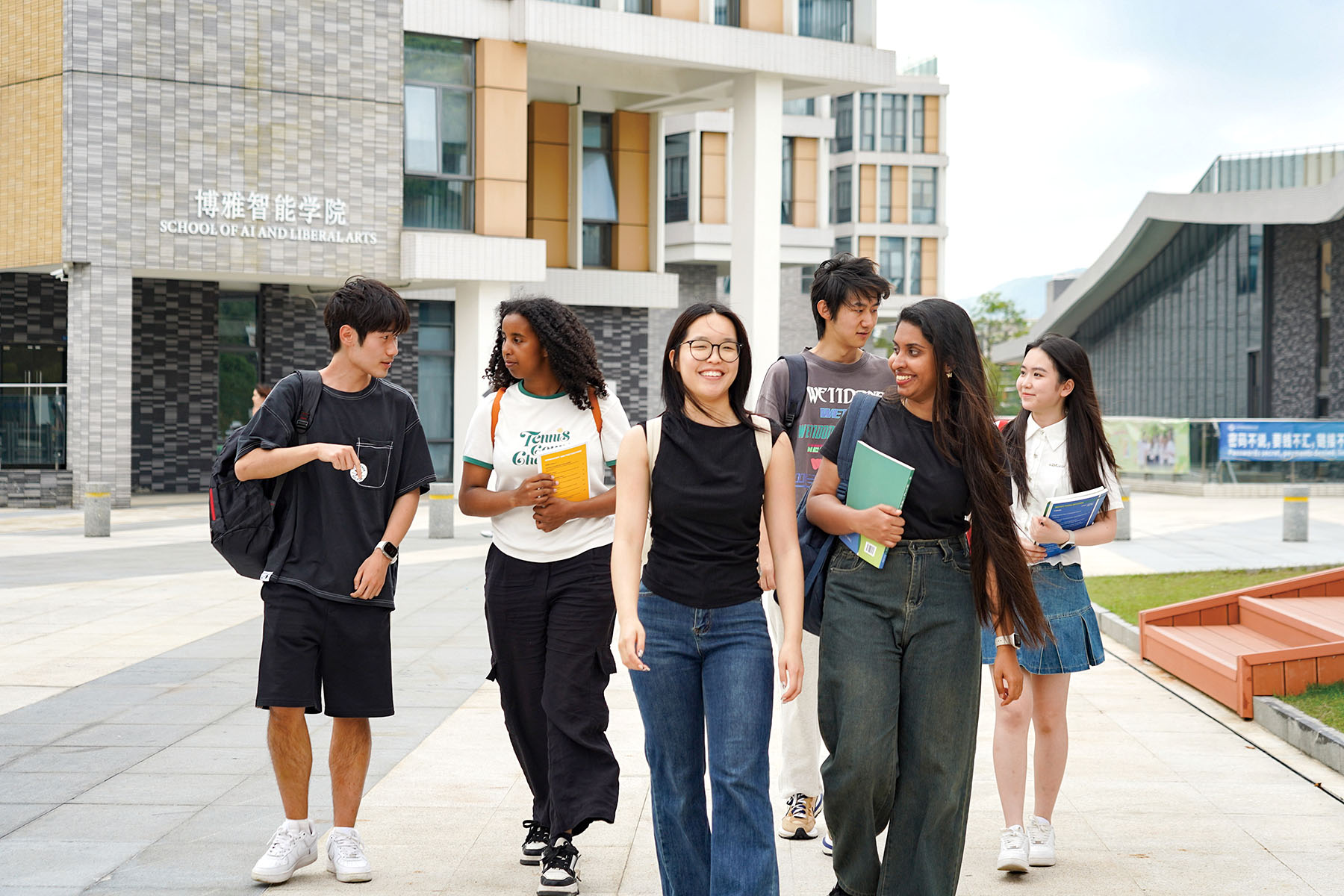The first HK-mainland joint university celebrates 20 years of internationalization, innovation, and cross-border exchanges

Two decades after its founding, Beijing Normal-Hong Kong Baptist University (BNBU) becomes increasingly confident in its role as a leader in cross-border education and talent cultivation, BNBU President Chen Zhi told China Daily shortly after one of its 20th anniversary celebration series events.
Established in 2005, in Zhuhai, Guangdong province, BNBU was the first of its kind to be approved by the Ministry of Education, following the State Council’s nod for joint educational ventures two years earlier.
Today, it has built a robust alumni network sprawling across the Guangdong-Hong Kong-Macao Greater Bay Area and embraced artificial intelligence-driven reforms in liberal arts education.
As the university gains a global reputation, 85 percent of its graduates pursue further studies abroad, according to the 2024 undergraduate employment quality report, which analyzed data from 1,614 graduates.
Among these, 85 percent gained admission to the world’s top 100 institutions under the reputable QS rankings.
“This urge to go out exploring is something of great value that we constantly encourage among our student community. To experience diverse cultures — witnessing the world — is pivotal for young individuals to cultivate a global perspective,” Chen said.
Such exploration often leads to cultural exchanges and new undertakings, he added.
BNBU’s Boston Center in the United States, launched in January, serves as a prime example. The center has become a hub for China-US educational and academic dialogue, hosting symposia like “Cambridge Confluence”, which drew over 800 participants both in person and online this year.
Amid geopolitical uncertainties, Chen stressed the importance of people-to-people exchanges in academic fields for fostering mutual understanding.
BNBU has been diversifying its faculty and students, aiming to increase the international faculty proportion from 22 to over 30 percent. It already boasts faculty from over 40 countries and regions, with 13 personnel recognized among the world’s top 2 percent of scientists by Stanford University.

The university’s appeal is particularly strong among students from across Asia and countries participating in the Belt and Road Initiative, Chen said.
He sees BNBU’s influence extending across the Greater Bay Area. “A substantial number of our graduates will take up postgraduate study opportunities in Hong Kong, which aligns well with the city’s strategic agenda under the ‘study in Hong Kong’ brand,” he said.
BNBU’s natural advantage — its strong ties with Hong Kong Baptist University (HKBU) — has facilitated students’ advancement to master’s or doctoral programs at HKBU.
At one of BNBU’s 20th anniversary events, Hong Kong Secretary for Education Christine Choi Yuk-lin commended the school as an exemplary model of the joint provision of education services between the Chinese mainland and Hong Kong.
She emphasized that the SAR government’s commitment to champion such partnerships across the region, urging higher education sectors to tap more flexible and innovative collaborative initiatives, such as developing complementary academic curricula and cross-border facilities.
HKBU President Alexander Wai Ping-kong echoed the sentiment, praising BNBU’s contribution to greater talent mobility within the Greater Bay Area, which is key to the region’s integrated development.
Chen believes that BNBU’s presence provides a talent pipeline for both academic institutions and local industries. According to a three-year average from 2022, nearly 60 percent of BNBU graduates who entered the job market secured positions in the Greater Bay Area, primarily in Zhuhai, followed by Guangzhou, Shenzhen, and Hong Kong.
Extended student development tracking showed that about 50 percent of the school’s alumni returned to the region after completing further education abroad.
BNBU’s alumni exemplify its impact. Jia Fan from Hohhot, capital of North China’s Inner Mongolia autonomous region, and David Tai, a Hong Kong native, co-founded Beeplus, a real estate management company, in 2015. By 2022, the firm had achieved a valuation of 1 billion yuan ($138 billion) following a strong Series C funding round.
The firm now boasts joint headquarters in Shenzhen and the Guangdong-Macao In-Depth Cooperation Zone in Hengqin, adjacent to Macao.
Chen visited the company five years ago and said he felt “seriously interested and impressed” when Jia told him that many management techniques deployed in the company’s daily operations were derived from his experiences leading a student club at the university.

In 2019, in appreciation of his alma mater and in the hope of championing nascent innovators, Jia established the “Beeplus Scholarship” at BNBU.
Chen praised the duo’s success stories as validation of BNBU’s signature liberal arts curriculum, which was pioneering on the mainland. This holistic approach emphasizes interdisciplinary learning, critical thinking, and a humanistic sensibility.
BNBU is now integrating AI into liberal arts education. The unveiling of BNBU’s School of Artificial Intelligence and Liberal Arts (SAI) during the school’s 20th anniversary marked its determination to embrace an AI-driven future.
“The omnipresent AI boom is rapidly altering our self-perception and societal values. This necessitates its integration into education to equip students with future-ready qualities, resilience, adaptability, and the capacity for lifelong growth,” Chen said.
Under SAI, new interdisciplinary, AI-integrated programs across various subjects are expected to take shape.
Open for application from the 2025-26 academic year, the admission process is to feature a “mutual selection principle”, with a grade prerequisite set and invitations sent to freshmen enrolled in all other faculties.
“The idea is to lure the top students who are proactively seeking ways to engage with the latest technologies,” Chen said.
Meanwhile, SAI will oversee a thorough review and revamping of the existing offerings in BNBU’s School of General Education, which provides undergraduate students with rich liberal arts courses spanning Chinese cultural heritage, science, technology, and self-management.
SAI will also serve as a strategic fulcrum for the university’s faculty recruitment bid. Chen confirmed that interdisciplinary prowess and AI competence are among the major hiring considerations.
BNBU recently launched the “Global Talent 100 Scheme”, aiming to familiarize 100 academics with the program over three years starting from 2025. The official callout document listed “a 20-person AI team to advance its curriculum and train existing staff in AI application” as one of the program’s key objectives.
Together with the Institute for Advanced Study — another recently established platform at BNBU dedicated to interdisciplinary research and industrial applications — SAI is slated to be among the first to move into the university’s Phase II campus, currently under construction.
Located just a three-minute drive from the current main campus, the Phase II 400,000-square-meter campus will include three additional building clusters designated for scientific research, teaching activities, and student accommodation.
It is planned as a new technology research and industry incubation hub, designed to host a community of 6,000 students and 1,000 staff.
Contact the writer at wanqing@chinadailyhk.com


